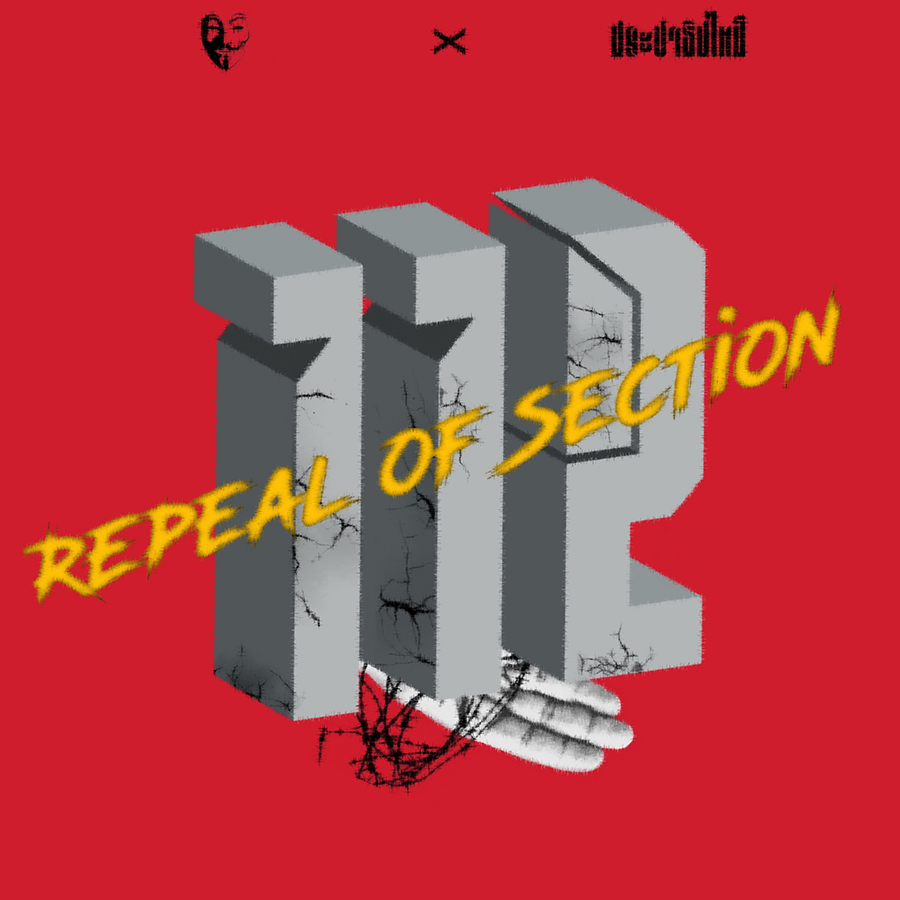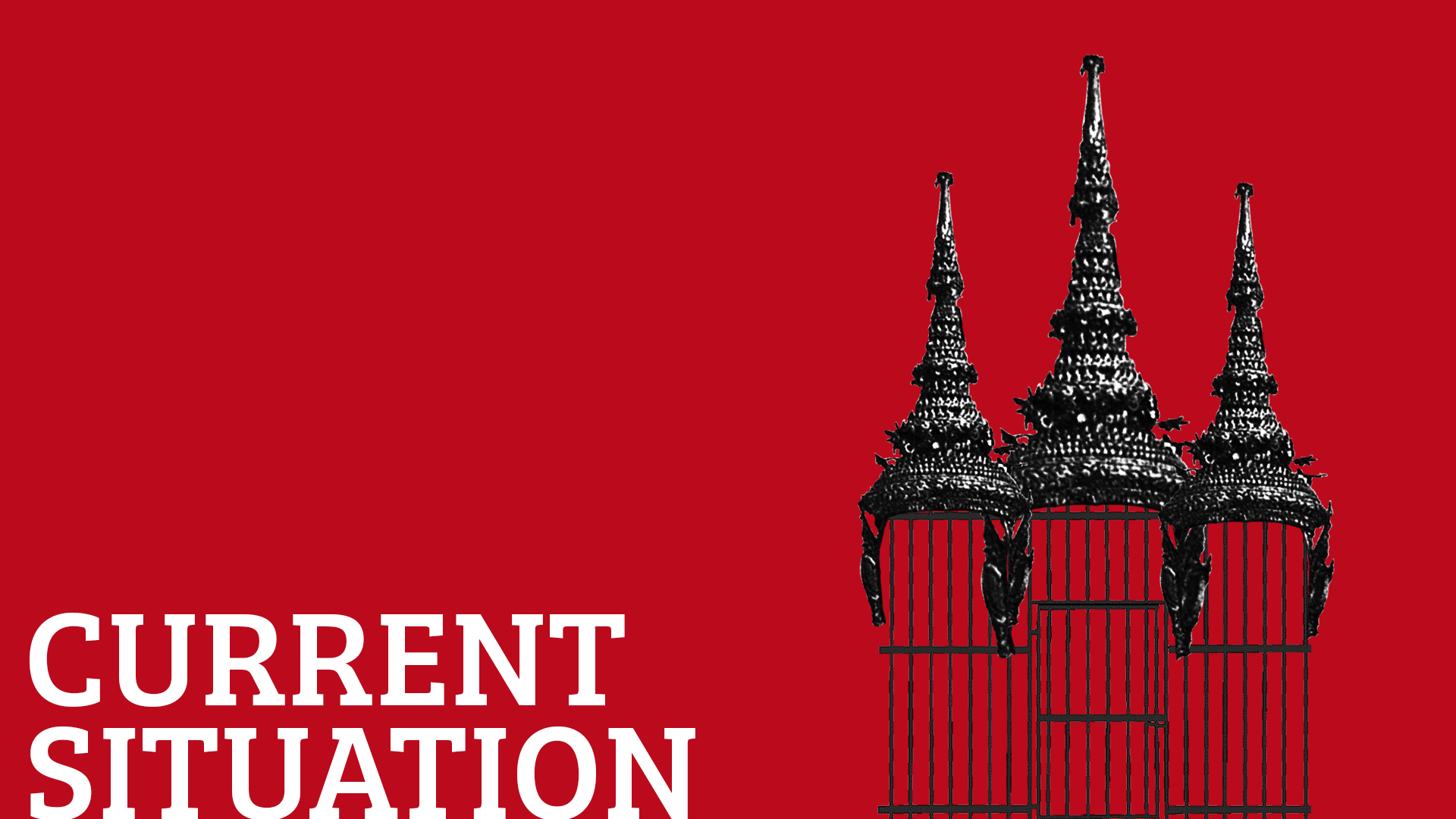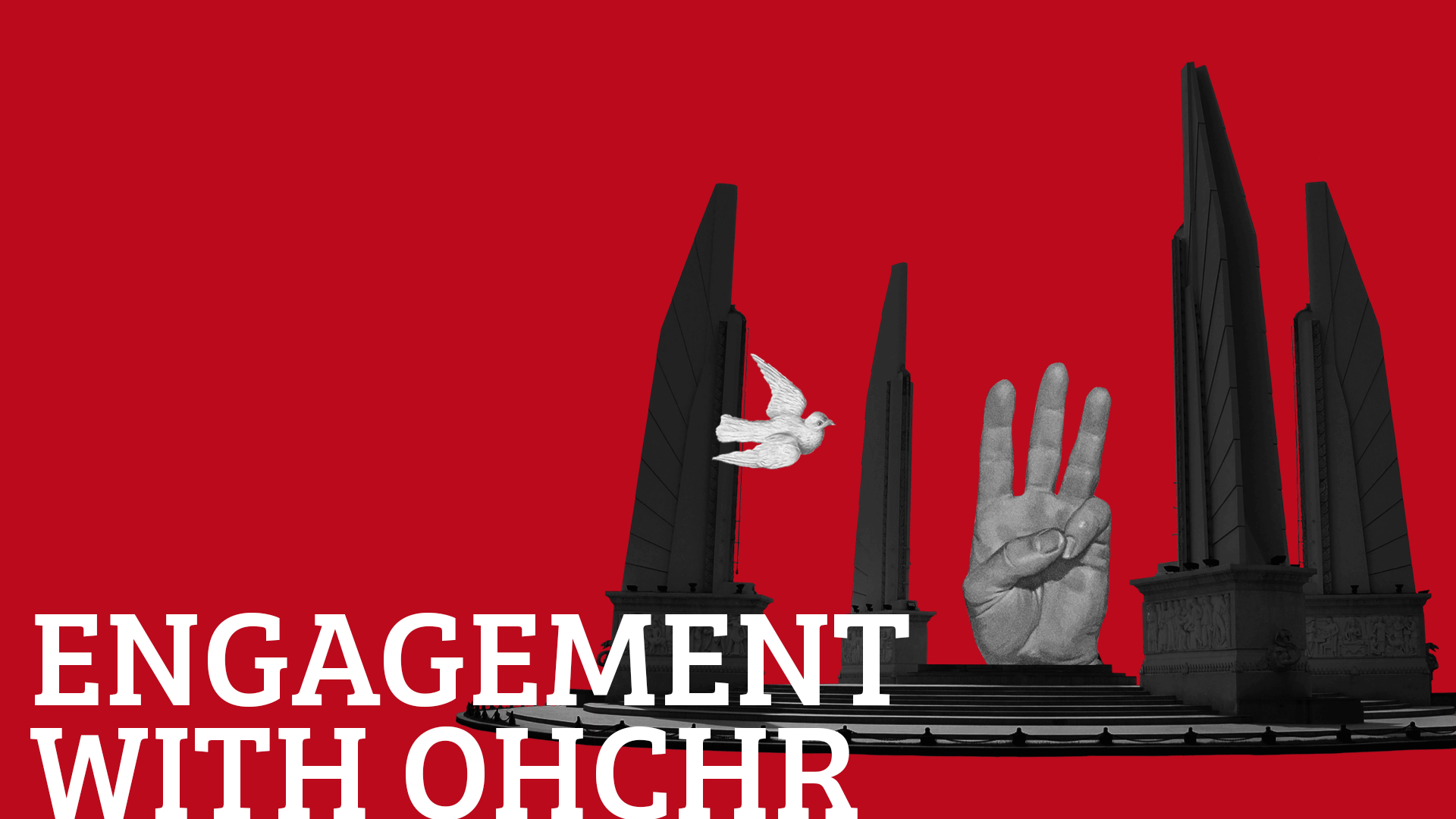
Section 112: The Red Line of Power in Thailand’s Amnesty Game
Section 112 remains the red line of power that no Thai political faction dares to cross, even under the banner of reconciliation and social harmony. Its exclusion from the proposed amnesty bill reflects a deep entanglement between state legitimacy and the traditional triad of “Nation, Religion, Monarchy.” Ultimately, genuine peace may remain elusive as long as society hesitates to confront the fundamental questions of freedom and political equality.
112Watch: October 21, 2025
The deliberation of the Social Harmony Promotion Bill—widely known in the media as the “Amnesty Bill”—in the parliamentary committee has become a stage revealing the enduring complexity of Thai politics after more than a decade of political conflict. While the bill’s stated aim is to resolve political divisions and foster “reconciliation,” it has instead become a mirror reflecting the “red line of power” that no political actor in Thailand dares to cross—especially when it comes to Section 112 of the Criminal Code.
The Origins of Sensitivity
Section 112, or the lèse-majesté law, is deeply intertwined with the structure of state power in Thailand. Its existence is not only as a mechanism to protect the monarchy but also as one of the most powerful political control tools. It defines the boundaries of permissible expression and legitimizes a political order built upon loyalty to the throne. In the current amnesty proposals, all political parties—including the ruling Bhumjaithai Party, Kla Tham Party, Thai Sang Thai Party, and Pheu Thai (now in the opposition)—have excluded Section 112 cases from the scope of the bill.
The stated reason is to “avoid misunderstanding that this would repeal laws related to the monarchy.” But politically, this is a pre-emptive move to prevent backlash from conservative forces who see any attempt to touch Section 112 as a direct threat to the state’s foundational order. As a result, discussions within the committee have been marked by extreme caution. Some members have called for a humanitarian approach, especially in cases involving young protesters prosecuted between 2020–2022. Yet the majority took the stance that it was “too risky” to open the political door even slightly—fearing that it could doom the entire bill in parliament.

From “Not Applicable” to “Not an Amnesty”
The original draft stated that “this law shall not apply to offenses under Section 112.” During committee deliberations, the wording was softened to read, “this law shall not have the effect of granting amnesty for offenses under Section 112.” While the two phrases are legally similar, the change carries symbolic weight—a political manoeuvre to appear less exclusionary without actually altering the substance. Some praised the adjustment as a form of compromise that would help the bill move forward. But substantively, nothing changed: Section 112 cases remain firmly outside the scope of amnesty. What drew attention, however, was a newly added provision—Section 9/1—allowing the Amnesty Committee to recommend that prosecutors or juvenile courts apply special measures in lieu of punishment for offenders under 18 at the time of the offense. This was seen by many as a technical workaround to provide relief to young political defendants without directly touching Section 112. In practice, though, this mechanism is far weaker than amnesty itself. Decisions remain at the discretion of prosecutors and courts, whose interpretations of intent and offense under Section 112 remain extremely strict. Even in juvenile cases, punishments have often been disproportionate to the acts committed.
Section 112 and the Architecture of Thai Power
Excluding Section 112 from the amnesty bill is not merely a legal decision—it reflects the enduring structure of Thai state power, still anchored in the triad of Nation, Religion, and Monarchy as the foundation of state legitimacy. To challenge this law is, in effect, to question the very architecture of that legitimacy—not just a single legal provision. The current coalition government led by the Bhumjaithai Party faces the same dilemma. Allowing the bill to include Section 112-related cases would instantly threaten its stability, as conservative factions—within the military, judiciary, and mainstream media—would weaponize the issue to attack the government. Maintaining the exclusion of Section 112 has therefore become a de facto “guarantee of political security” for the Bhumjaithai-led administration. Meanwhile, many pro-democracy groups and civil society actors view the exclusion as blocking the path toward genuine reconciliation. They argue that many political prisoners—especially young activists—were prosecuted for peaceful expression, not for subverting the state. By denying these individuals relief, the state signals that reconciliation in Thailand remains conditional upon “excluding the monarchy”—a condition virtually unheard of in modern democracies.

The Politics of Fear and the Incomplete Reconciliation
What stands out in this process is the politics of fear—fear of conservative backlash, fear of institutional pressure, and fear that the bill might fail in parliament. These fears have driven all political sides to choose the “safe” path over the “just” one. But it is precisely this fear that renders the notion of “social harmony” little more than rhetoric. A society cannot achieve peace while so many people continue to lose their freedom, future, or dignity simply for expressing political opinions. True amnesty should rest upon the principle of equality in human dignity, not the state’s selective forgiveness that divides offenders into the “acceptable” and the “unforgivable.” As long as political discrimination persists, genuine reconciliation will remain out of reach. Section 112 is more than a legal clause—it is a political boundary line defining the limits of power and freedom in Thailand. Every attempt to discuss amnesty or legal reform encounters this same barrier, as though Section 112 serves as a standing reminder that the Thai political system is still unwilling to confront its most fundamental question:
Can loyalty coexist with freedom? Thus, even as the Social Harmony Promotion Bill advances through parliament, its promise of reconciliation will remain illusory so long as Section 112 cannot be openly debated. True peace cannot emerge from an amnesty that frees some while others remain imprisoned for their thoughts.




